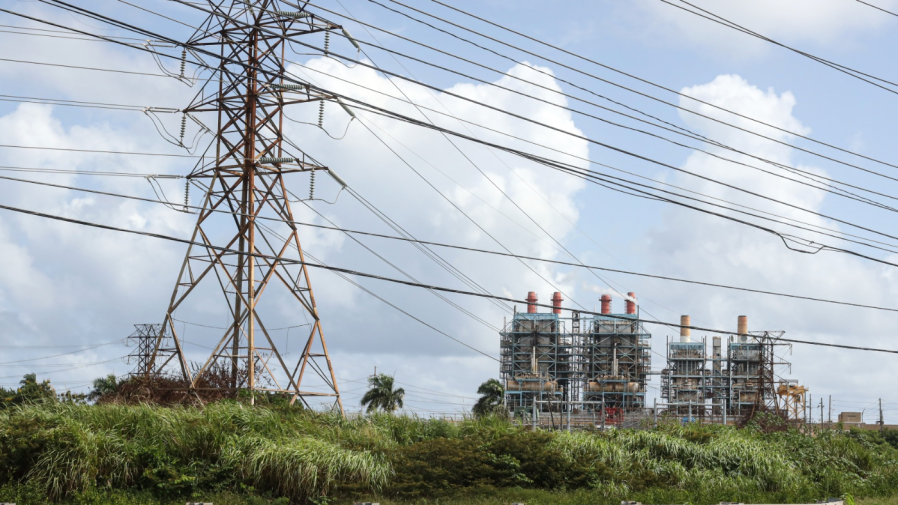Puerto Rico waits anxiously for EPA power plant approval

Puerto Rico’s leadership is growing nervous waiting for pending federal permits to operate two sets of power generators that are propping up the island’s fragile electrical infrastructure.
The territory’s government is due to take control of the two generators, currently owned by the Federal Emergency Management Agency (FEMA), a week from Friday, but Puerto Rico does not have the necessary Environmental Protection Agency (EPA) permits to continue operating the plants.
FEMA, a part of the federal government, is authorized to run the generators under the Federal Facilities Compliance Agreement (FFCA).
“In order to operate these generators in the absence of an FFCA, Puerto Rico will have to obtain permission from the EPA, which has a cumbersome process,” wrote Rep. Ritchie Torres (D-N.Y.) in a letter Monday to EPA Administrator Michael Regan.
“If the EPA fails to act with urgency, these generators are in imminent danger of shutting down by March 15th, threatening Puerto Rican households and businesses with a calamitous loss of electricity,” wrote Torres.
Torres and Senate Majority Leader Chuck Schumer (D-N.Y.) are pushing the EPA to fast-track permits, citing a series of economic and humanitarian risks if the island’s power grid fails.
“Sen. Schumer is working with Rep. Ritchie Torres and the Government of Puerto Rico to quickly get EPA to complete the transfer to [the Puerto Rico Electric Power Authority] of these vital FEMA generators, which provide power to tens of thousands of Puerto Rican households,” Nairka Treviño Muller, a spokesperson for Schumer, wrote in an email to The Hill.
“We need to keep the lights on as we move to transition Puerto Rico to cleaner, resilient, cheaper, and more efficient power generation and electricity.”
The discord with the EPA over the generators is the latest in a long series of regulatory obstacles the Puerto Rican government has faced to keep the generators, which were originally installed as an emergency measure in the wake of 2022’s Hurricane Fiona.
In October, FEMA informed the Puerto Rican government of its intentions to shut down the generators by March 15, as part of the wind-down of the federal emergency response to Fiona.
That set off a flurry of lobbying by Puerto Rican authorities that ended up in a deal for the territorial government to take ownership of the generators.
In February, Puerto Rico asked the EPA for a consent agreement and final order to keep running the generators, but EPA Region 2 Administrator Lisa García responded that the correct vehicle to keep the lights on was a consent decree.
Mary Mears, a spokesperson for EPA Region 2, told The Hill that process will not result in interrupted service.
“Unless there are unforeseen circumstances, EPA will not cause the generators to shut down,” wrote Mears in an email.
To kick off a consent decree, the EPA has to refer the case to the Department of Justice, an action the government of Puerto Rico has formally requested of the EPA.
“EPA can’t speak in detail about ongoing negotiations or enforcement matters, but please be assured EPA fully understands the importance of reliable power for the people of Puerto Rico and we have no intention of taking actions to jeopardize that,” wrote Mears.
For the latest news, weather, sports, and streaming video, head to The Hill.


